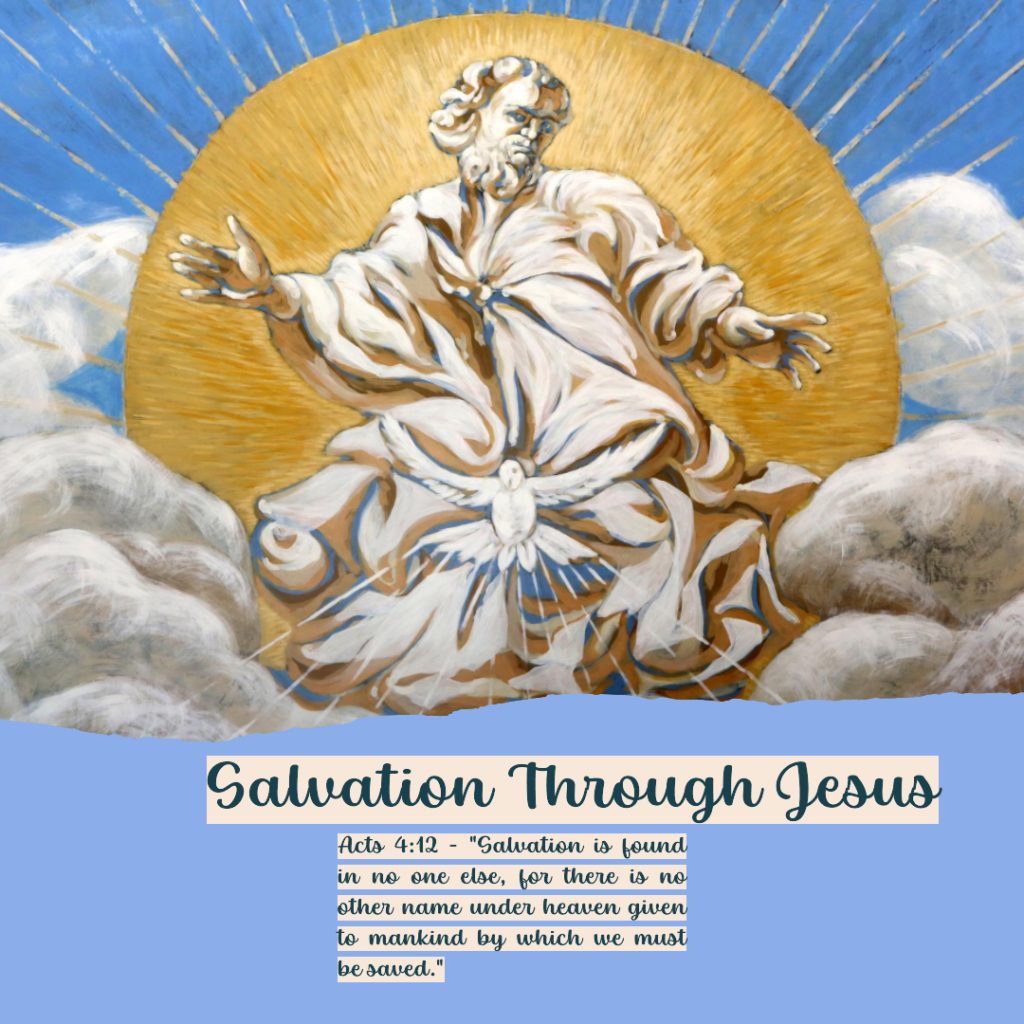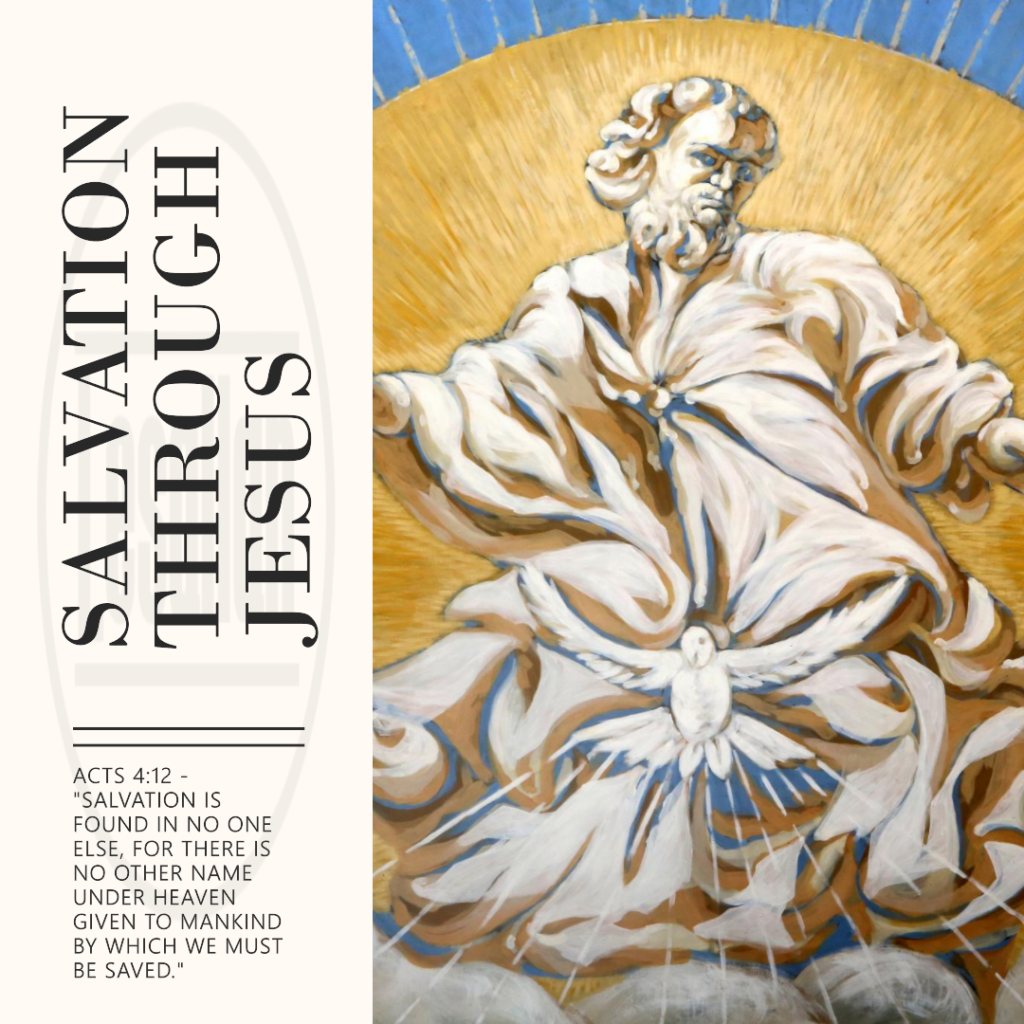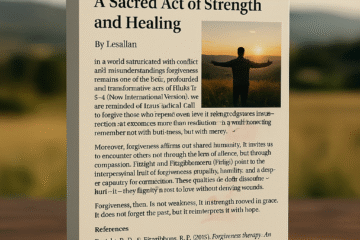
Eschatology Case Study – What Jesus Said About Salvation?
Lesallan Bostron
Ohio Christian University
THE4050 Investigating Christian Theology II (ONLF23)
Professor Jeremy Kamer
October 26, 2023
Eschatology Case Study – What Jesus Said About Salvation?
Here is my situation. I am in a conversation with someone who grew up in the church but has walked away. As I am having an honest, open conversation, he mentions he has come to understand that Jesus was not exclusive in his claims. He claims that all paths really lead to the same place. All religions, if they are followed with sincerity, will lead people to salvation and ultimately to eternity with God. This is a response I would give:
I would thank the person for being honest and willing to talk. I would say I have a different view of Jesus and what He said. I would show them some verses in the Bible where Jesus says He is the only way to God, like John 14:6, Acts 4:12, and 1 John 5:11-12 (NIV). I would also tell them why I believe the Bible is accurate and reliable, such as its historical facts, consistent message, fulfilled prophecies, and personal effect. I would then ask the person to consider what Jesus’ claims mean for our relationship with God and our future after death. I may ask questions that help me understand their view and then challenge them to question their beliefs and reasons, such as: How can you be sure that all paths lead to the same place? Where do you get this idea from? How do you explain the differences and conflicts among different religions? How do you solve the problem of sin and the need for forgiveness? How do you feel God’s love and presence in your life? I would then share my story of how Jesus has changed my life and gives us all hope, peace, joy, and salvation.
One possible way that I could attempt to explain the Biblical vision of salvation and eternal hope of Christ to a person is to use a courtroom analogy. I would ask them to imagine they are on trial for breaking God’s law, as summarized in the Ten Commandments. They may have lied, stolen, dishonored their parents, coveted their neighbor’s possessions, and maybe even committed adultery or murder in their hearts. The evidence against them is overwhelming, and they have no defense. They are guilty and deserve the punishment of death and separation from God forever. But then, something amazing happens. The judge, who is God himself, declares that he loves them and has provided a way for them to be forgiven and reconciled to Him. He tells you that his Son, Jesus Christ, has taken your place and paid the penalty for your sins by dying on the cross and rising from the dead. He offers you a free gift of grace that you can receive by faith. If you accept His offer, He will declare you not guilty, adopt you as His child, and give you eternal life in heaven. That is the gospel’s good news, the message of salvation and hope in Christ. It is not based on our good works or religious rituals, but on God’s love and mercy. We cannot earn or deserve it, but only accept it by trusting Jesus as our Lord and Savior.
To further bolster my perspective, I would offer to share a book by Thomas Oden, a person and theologist who writes about God and Jesus. Tell them that he says that some people think that “all religions, if they are followed with sincerity, will lead people to salvation and ultimately to eternity with God” (Oden, 2009), but this is not true and bad. Oden has also written that this idea goes against what the Bible says about God’s special love in Jesus Christ, who is the only way, the truth and the life (John 14:6). He also says that this belief makes people less eager to share the good news of Jesus and the specialness of being a Christian. He says that only those who are sorry for their sins and trust in the good news of Jesus can be saved and live forever with God (Acts 4:12). I would then end by affirming my love and respect for the person and expressing my desire to continue the conversation in the future. Blessings in Christ as we continue our academic pursuits and journeys through life.
Lesallan
References:
Oden, T. C. (2009). Classic Christianity: a systematic theology. HarperOne.



